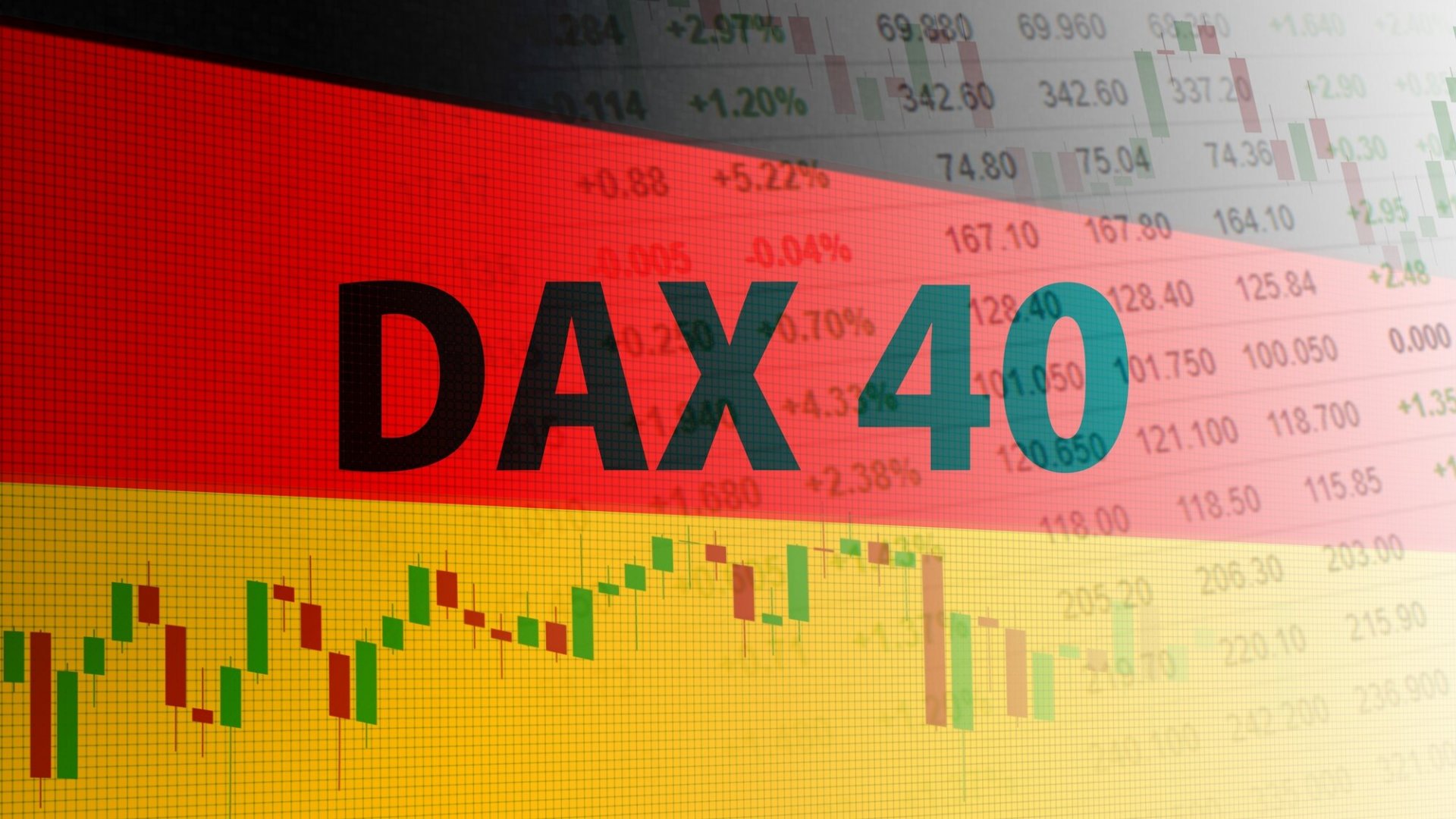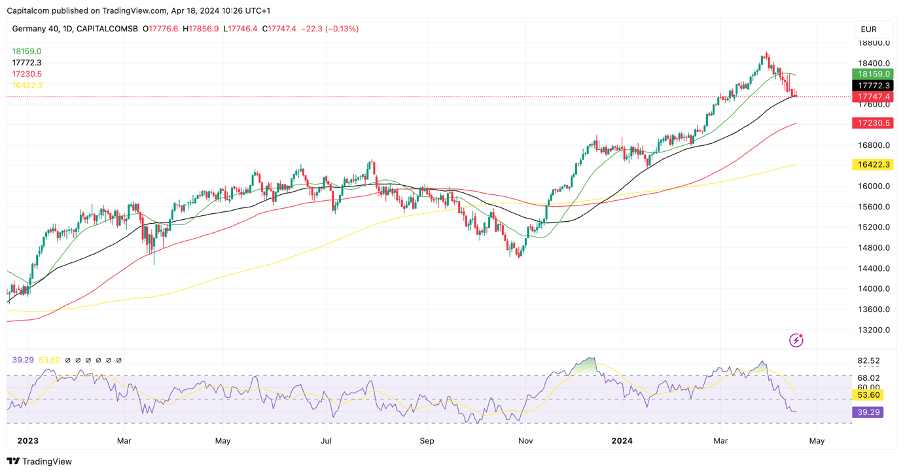DAX 40 clings to SMA support as pressures mount

Investors continue to show concern about ongoing geopolitical risks stemming from the conflict in the Middle East. The five-month-long bullish rally in global equity indices has come to a stern halt as investors flock to safer investments like gold and the US dollar. The fact that resilient economic data in the US and other regions has pushed back on rate cut expectations from some of the major central banks also hasn’t helped. Any potential recovery now seems to be reliant on strong earnings, and it doesn’t seem like they are proving to be enough, either in the US or Europe.
The DAX 40, Germany’s leading stock index, is down 5% from the highs seen on April 1st after rising over 25% between November and March. The current pullback isn’t a significant worry just yet, as the continuation of the bullish rally had become unsustainable and there was a need for a technical correction sooner or later. With the RSI now firmly back below 50, the momentum over the coming week will be key to determining where next in terms of short-term direction, as the path of least resistance is starting to be skewed to the downside.
DAX 40 daily chart
 Past performance is not a reliable indicator of future results.
Past performance is not a reliable indicator of future results.
So far, the 50-say simple moving average (SMA) – currently at 17,773 – has offered strong support since mid-November, having halted to pullbacks in January and February. The bearish pressure seems to have eased slightly over the past two sessions, which may be proving once again the strength of the support at this level. That said, a break below it would leave the index exposed to the 17,600 level, where we saw some sideways consolidation at the beginning of March.
The fact that the European Central Bank (ECB) seems to have distanced itself from the Federal Reserve concerning monetary policy could also offer some support for European equities. ECB President Christine Lagarde all but promised at the meeting last week that the central bank would cut rates in June, a welcomed decision by European equity traders. The fact that CPI is so close to the 2% target and has shown significant progress in the disinflation process over the past few months – unlike in the US – has given markets a sense of acceptance of the idea of lower rates in Europe, which will also aid growth, which has been struggling recently.